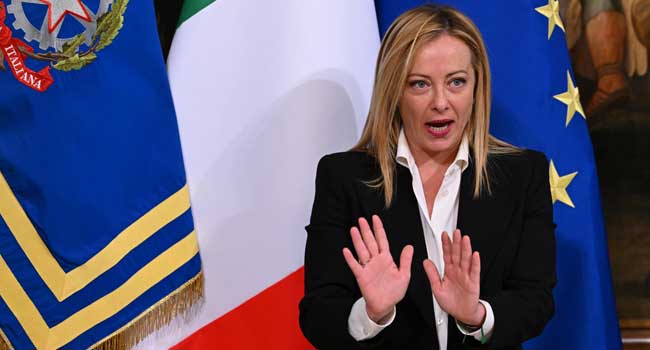Italian Prime Minister Giorgia Meloni criticised Wednesday an “invasive” tax evasion measure reintroduced by her own government, sparking accusations of incompetence from opposition lawmakers.
The measure, which would allow Italy’s tax authorities to check for discrepancies between someone’s declared revenues and their lifestyle, was abolished in 2018 but was announced in the government’s official journal of business this week.
Meloni had previously been strongly critical of the so-called “redditometro”, and took to social media on Wednesday to defend herself from accusations of hypocrisy.
“Never will any ‘Big Brother tax’ be introduced by this government,” she wrote on Facebook.
Meloni said she had asked deputy economy minister Maurizio Leo — a member of her own far-right Brothers of Italy party, who introduced the measure — to bring it to the next cabinet meeting.
“And if changes are necessary, I will be the first to ask,” she wrote.
Deputy Prime Minister and Foreign Minister Antonio Tajani, who heads the right-wing Forza Italia party, also railed against what he called an “obsolete tool”.
He called for it to be revoked, saying it did not fight tax evasion but “oppresses, invades people’s lives”.
Deputy Prime Minister Matteo Salvini, who leads the far-right League party, said it was “one of the horrors of the past” and deserved to stay there.
Opposition parties revelled in the turmoil in the governing coalition, where tensions are already high ahead of European Parliament elections in which all three parties are competing with each other.
“They are not bad, they are just incapable,” said former premier Matteo Renzi, now leader of a small centrist party.
Another former premier, Five Star Movement leader Giuseppe Conte, added of Meloni: “Was she asleep?”
The measure allows tax authorities to take into account when assessing someone’s real income elements including jewellery, life insurance, horse ownership, gas and electricity bills, pets and hairdressing expenses.
According to the government, tax evasion and fraud cost the Italian state around 95 to 100 billion euros ($103-$108 billion) each year.


